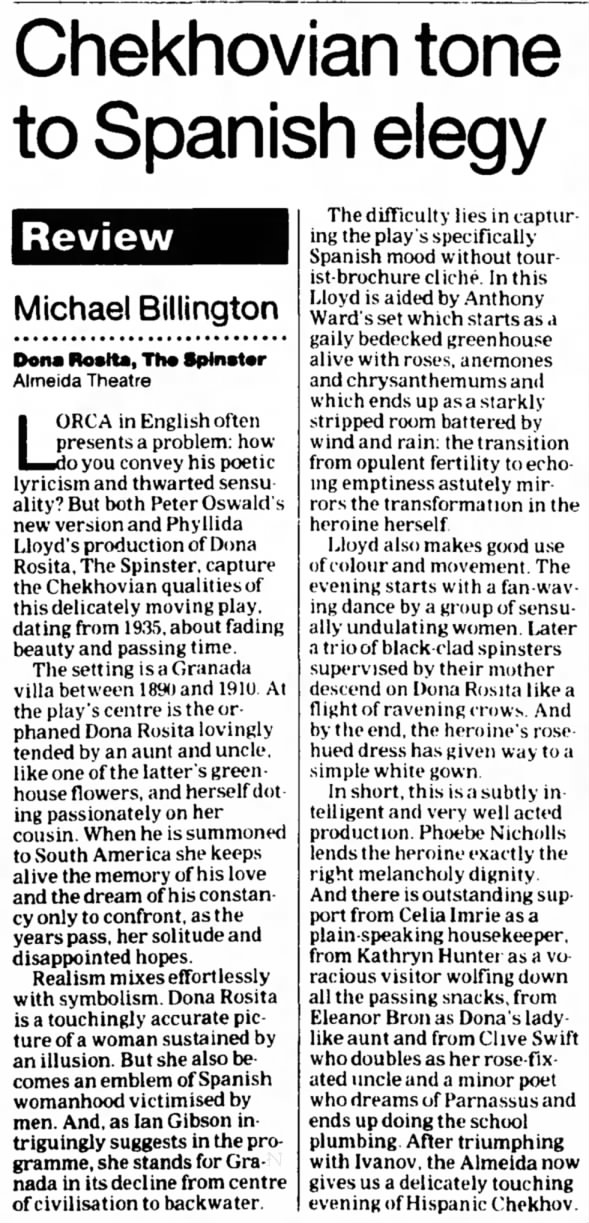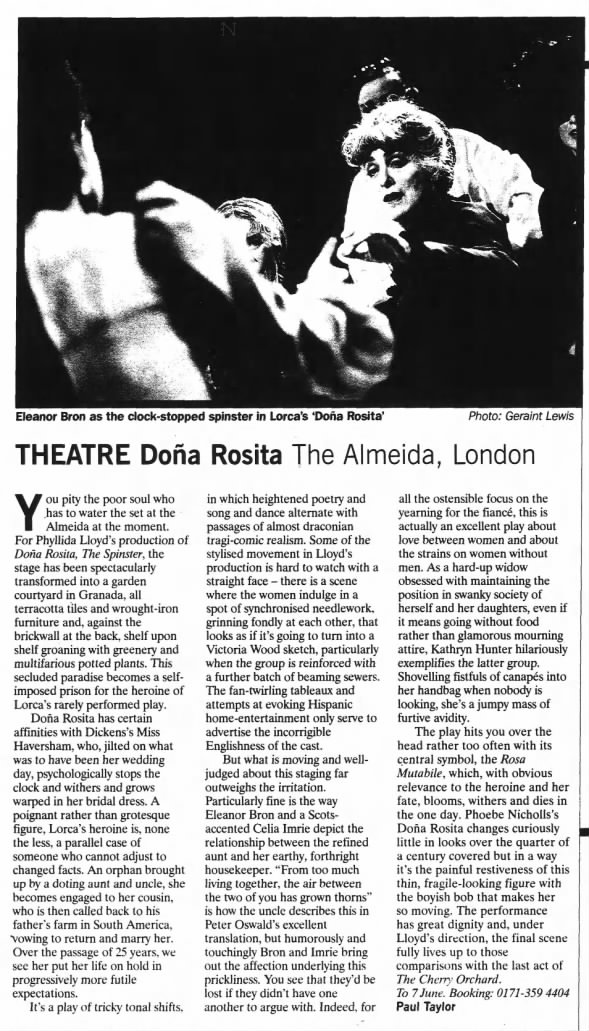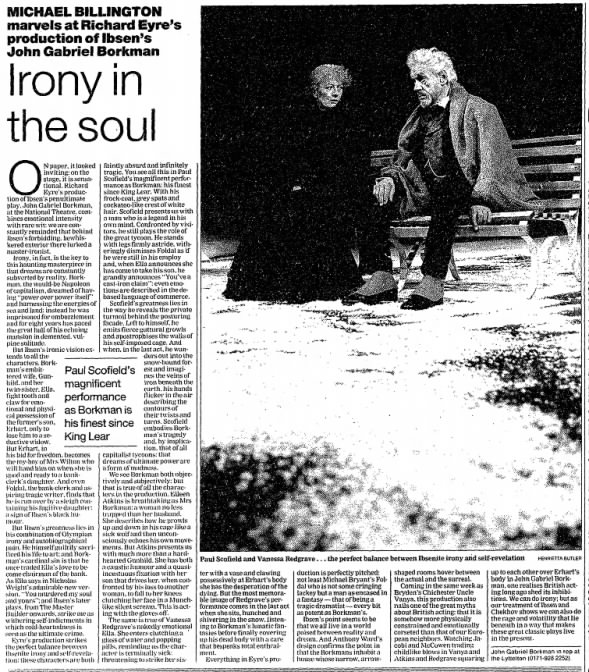I’ve heard it said that jazz is the only form of live music where the players seem to be having more fun than the audience. That was certainly so last night at the Wigmore Hall in Janie’s case; she certainly did not enjoy Christian McBride and Chick Corea as much as they enjoyed themselves.
Unfortunately for Janie, Unreachable by Anthony Neilson might be described as a theatrical equivalent of jazz. Neilson’s writing technique is to start with no more than an outline and to work up a piece through workshops, rehearsals, trial and error.
So much so that, rarely for the Royal Court, there was no play text available for this piece. Simon David at the bookstall told us proudly that the piece is still being devised even beyond press night (which was the previous night). Simon also commended the piece to us.
I got a heck of a lot more out of it than Janie did. She hated the piece so much she even wanted to abandon me and the car at half time; then reluctantly relented and agreed to stay for the remaining 45 minutes, suggesting that she might sleep a bit during that second half. But it wasn’t a relaxing enough piece to fall asleep in much, according to Janie. I agree with that last point.
The play opens with a scene showing Natasha (a very confident young actress named Tamara Lawrance) auditioning for a role in a movie. We hear the dismembered voice of auteur/director Max (played by Matt Smith) describing the film. It is set in a dystopian near future after a virus has wiped out most of the population etc. etc.
Some members of the audience laugh at this horrifying scenario; presumably they have been told that the play is basically a comedy. But Natasha then acts out a quite lengthy gruelling monologue as a mother who believes that a malevolent militia is about to inflict terrible cruelties upon her and her child.
So far, so Vicky Featherstone’s Royal Court. I have written before about the relentlessly dystopian theme of the new regime on Sloane Square, where the ubiquitous grimy kitchen sink has been replaced by the apocalyptic landscape. But perhaps this time the dystopian opening is a tongue-in-cheek nod to the new norm in SW1’s corner of theatre-land…
…because, beyond that early monologue, Unreachable is basically a lightweight, albeit black comedy, looking behind the scenes at the world of movies and movie-making people. They are a grotesque, dysfunctional lot, if this play is to be believed. Probably the play shouldn’t entirely be believed.
Another element you might find hard to believe (but this bit is true) is that Janie and I live in such a limited-TV-viewing bubble that we had no idea that Matt Smith was Doctor Who. We just thought of him as the fine young actor we saw in That Face by Polly Stenham a few years ago. But it was clear from the business he was given to perform and the audience reaction to it that Matt’s performance was the centre-piece of the play…
…until the arrival of the craziest character of all; Jonjo O’Neill’s Ivan “The Brute”.
Even Janie agreed that all of the performances were very good. She just struggled to get her head around the play. The plot was perhaps so superficial Janie was looking for “more in it” when there was no more to be had.
But I laughed a lot and enjoyed the sheer nonsensical intrigue of it. Indeed, in our troubled post-referendum times, the preposterous back-stabbing, feigned walk-outs and the politically-motivated engagement of an uncontrollable anarchic element in the interests of some unattainable “light at the end of the tunnel”… it seemed to me to be quite an appropriate tonic for the live-arts-supporting troops at the moment.
As for the jazz analogy, well clearly the cast seemed to be enjoying themselves enormously. In particular, once Jonjo O’Neill got going with Ivan’s foul tongue and ludicrous boasts, you could tell that not only the audience but also the other members of the cast didn’t quite know where his verbal cadenzas might go. The other actors needed to react quickly to those crazy outbursts without corpsing; which they were able to most but not all of the time.
To be fair, although Janie didn’t enjoy herself and some audience members left at half time, the vast majority stayed and were clearly enjoying themselves at least as much, if not more than the cast.
Here’s a link to the plentiful Royal Court resources on this play.
The Royal Court will no doubt post some reviews eventually, but they are only starting to come out, as the press night was the night before our visit. So far:
- Whats On Stage loved it;
- …so did The Stage…;
- …and Time Out also loved it;
- But Dominic Cavendish in the Telegraph hated it…;
- …while our friend, Michael Billington in the Guardian gave it his curate’s egg review treatment.
Janie would say “take my word for it, don’t bother” whereas I would say, “decide for yourself – go see it!”.







